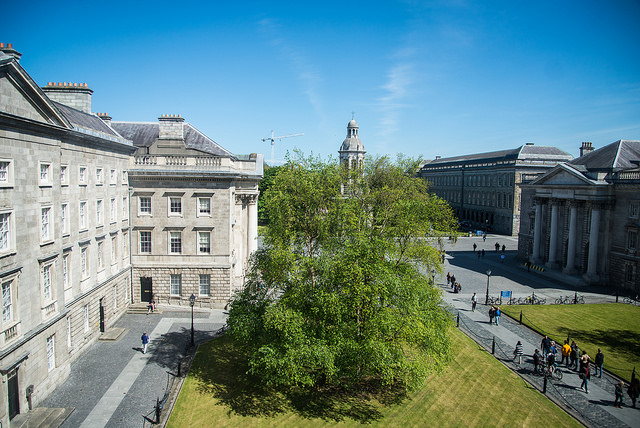Eleven Trinity researchers have been honoured at Trinity’s first-ever Research Excellence Awards, set up last year after the launch of College’s Research Strategy.
The 11 winners – including Jane Ohlmeyer, the director of the College’s Long Room Hub – were announced online, with an in-person event cancelled as a result of the coronavirus pandemic.
The awards celebrate those who “most embodied the spirit” of Trinity’s research principles – set out in College’s Research Charter – this year, with over 100 nominations received.
Kingston Mills, a professor of experimental immunology in Trinity’s School of Biochemistry and Immunology, was also among the winners, as well as Máire Brophy, from the School of Computer Science and Statistics.
The large number of nominations, Trinity’s website says, “made the awards committee’s task even more difficult in deciding who the recipients would be”.
Roja Fazaeli, an assistant professor in Islamic civilisations, was among the winners for embodying the principle of cherishing academic freedom, while Christine Casey – a professor of architectural history – won for the principle of putting “research at the heart of Trinity”.
Patricia Doherty, Conor McGinn, Ruth Brennan, Mairéad Hurley, Joseph Roche and David O’Shaughnessy were the other winners of the awards.
Last year, Dean of Research Linda Doyle emphasised the importance of “standing up for research” at the launch of the College’s first-ever Research Excellence Strategy.
“We’re never going to have to stop explaining why research matters. We’re never going to have to stop explaining why it’s really important to fund basic as well as applied research”, Doyle said.
Provost Patrick Prendergast said: “Just like the heart pumps blood around the body to all the major organs, we are explicitly linking research to the key priority areas of this university.”
“We are adamant about our focus on fundamental and applied research and we prioritise the resourcing of research”, he said.
This week, Trinity professor Dan Bradley has won a European Research Council (ERC) grant worth €2.5 million for his work in the field of ancient epigenetics.
Bradley, a professor of population genetics, will receive the grant to support AncestralWeave, an investigation into the ancient genomes of cattle, sheep and goats to better understand when and where periods of ancient human innovation shaped breeding patterns.
He is one of only four Irish recipients of ERC grants on this occasion.
The award also comes after a call by the Irish University Association (IUA) last year to rethink how research is funded in Ireland after the country won only one out of 408 ERC research grants last year.







